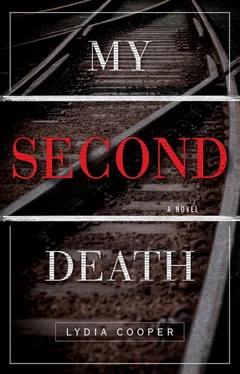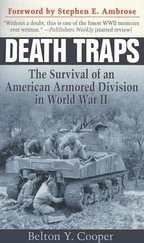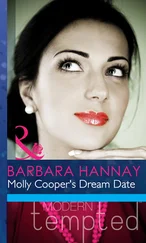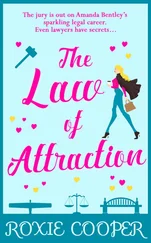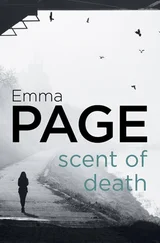I thought going to college would help me learn to blend in, find my rhythm, my way through the feelings other people translate as emotions. But it didn’t work out that way.
As I walk down the hall, snatches of conversation from open office doors drift out. Faculty isolated in small offices with a single windowpane, a few plants, seventeen thousand books, and a rotary telephone that went antique in the ’90s. Someday I will live in one of those offices. It will smell of damp mold and dust and I will leave the door shut.
The dean’s office is in a red brick building with wide white-painted steps. I climb the steps and go inside, my sneakers squeaking on polished parquet. My footsteps slow. I know it’s illogical, but I am convinced that as soon as I walk in he will see it in my face, the fact that I’ve gone closer to the edge than I’ve been since I was ten. He knows me well enough that he should be able to see it. I almost turn around and leave. But I tell myself that he’s not a very perceptive individual. And that’s true. He’s a solitary man, the dean in his glistening dean’s aerie. In many ways he’s as close to antisocial as a normal person can get.
I walk down a carpeted corridor to an office sporting a brass plaque that reads The Office of the Dean . The dean’s secretary looks up when I come in, one hand pressed to her ear. “I’ll tell him you’re here, Mickey.”
I go over to a rack of magazines and glossy brochures. Travel in Spain! Summer Abroad in Scotland! Declare a New Major!
“Mickey? He can see you now. Just go on in.”
His office door is a big wooden slab fitted flush in its frame. I wipe my palms on my pant legs and push it open. The office has tall windows on two sides, but the blinds are pulled, the only light an amber glow from a frosted glass globe to the side of the desk. Waxed plastic plants in woven planters, rows of leather-bound books with uncreased spines, and dust-free cherry wood bookshelves. It is good, in short, to be dean.
I pull out the chair facing the desk and sink down onto a faux-leather seat cushion with brass tacks. The leather lets out a fart-like sigh, and I let out a nervous laugh.
The dean sits far back, one leg crossed over the other, his elbows pressed to the armrests of his orthopedic swivel chair. His hands rest loosely in his lap, knuckles like walnuts under papery skin, small polished fingernails.
He leans forward and his face emerges from shadow a piece at a time, like a geographic puzzle sorting itself out, lines and creases and planes and hollows. An aristocratic forehead and neatly combed graying hair. Wire-rim glasses. And his dark heavy-lidded Semitic eyes that always look on the brink of tears. I’ve never seen him cry.
He clears his throat. “It’s your brother’s birthday tonight.”
I unzip my hoodie, then reconsider and zip it halfway up. “To be precise, it’s his birthday this morning as well. But don’t worry, I understand the subtext here. You want me to play big sister tonight. You’re sounding the depths, testing the waters of crazy. The ebb and flow of hysteria. Am I right?”
He clears his throat again, a syncopated two-syllable rearrangement of phlegm. “So, how are you.” A proposition, not a query.
I zip my hoodie up to my neck.
A flash of bone and stringy flesh, a smell like old fish and maple syrup.
I look at one of the fake plants. The woven planter has a plaster base like a real planter, ready to catch the life-carrying water that will never be poured out on this polymer construction. I wonder if anyone has written a psychological study on the verisimilitude of fake plants. I stare hard at the plant. My eyes burn.
I’m not good at this, at lying. I cough. Then I spread my mouth wide, separate my teeth. I’m going for happiness, but for all I know I look like a badger having a stroke. “I’m peachy,” I say. “Dandy. Absolutely tip-top. How are you?”
My father watches my face then sits back, dissolving into darkness.
“I’m — doing well.” He pauses. “So you… I mean to say, will you be present tonight? For your brother’s birthday?”
I hunch my shoulders. “Mom already told me in no uncertain terms that I’ll be present and accounted for. Say, separate bedrooms seem to be hell on your marital communications.”
“Yes,” he says.
I look at him.
He doesn’t say anything else.
The glossy desktop reflects his shadowy image. I don’t know what to say. “Um, if you need a shoulder to cry on—”
He turns to look directly at me. His face, disembodied by shadow, moves into the sepia light. The skin near his eyes wrinkles. “A shoulder.”
“Well. It’s the thought that counts. That’s what they tell me anyway.”
“That is what they say.”
“Okay. So, I’ll be there tonight.” I reach for my backpack.
“One other thing,” the dean says.
“Come on, a nother complaint? Dad, seriously, they’re a bunch of assholes.”
“No, not that. I just wanted to say that I spoke with Robert Telushkin.”
The dissertation director. The bullfrog with a whiskey voice.
I don’t say anything.
“About what Bob Telushkin said, ah, you should know that — he and I may differ in many viewpoints, but your — your scholarship is good. You should know that.”
I don’t know what he means at first. And then I figure it out.
“It’s okay, Dad. You don’t have to console me. I know I’m not like the other kids.” I sigh. “And he’s not wrong. I’m not going to succeed much in life with my, uh, problems. But I’m fine with that.”
He doesn’t say anything.
I stand up. “Seriously. I am.” I don’t know if he believes me. I don’t think I believe myself. Even gods decompose . “Don’t worry about me.”
“No,” he says.
I don’t know if he means that he won’t worry or if he means to negate my adjuration, that he must worry. As I leave his eyes follow me, a glimmer of white from the gloom.
When I go outside a light rain has started to fall in drifts like seaweed. Mist beads on my eyelashes. When I blink cold dribbles race down my face. I think of the plants in my father’s office and realize that the rain on my face is my own mummery, the verisimilitude of tears that I will never produce on my own.
I stand outside the administrative building watching students hustle past. They call to each other, wave, fling arms around each others’ necks or slap each others’ backs. A skateboarder leaps the fountain to a scattering of applause.
Beyond the fountain is the university library, a brick and concrete monstrosity that looks like a Cubist ziggurat. I look around but no one seems to be studying me. Whoever left me that note was on campus, knew my campus schedule. Knew where my office was.
I check my watch. Hours to kill until my brother’s birthday dinner. The library is safe. No corpses in the stacks, no incriminating questions that people will remember when the city detectives arrive at some point in the future. Just… information. The blank substance of knowledge encoded on a page.
I head past the fountain to the library and push through the security alarms, metal detectors to prevent the theft of the mildewing tomes that exist in multiple copies in every academic library in the lower forty-eight states. The library always smells musty and acrid, like sweaty shoes and Xerox machine toner. I’ve heard my graduate student colleagues joking that the only reason people come here is to fornicate in the stacks, but that has always struck me as suspicious. The library’s fug is no aphrodisiac I would recognize.
I go up the winding steps to the third floor where pale light filters through flyspecked windowpanes, the mustard-yellow carpet is worn thin as old linen, and the stacks of books smell like damp paper. Unlock my study carrel, log onto my laptop, and sort through stacks of printed-off digitalized illuminated manuscript pages from a ninth-century book.
Читать дальше
